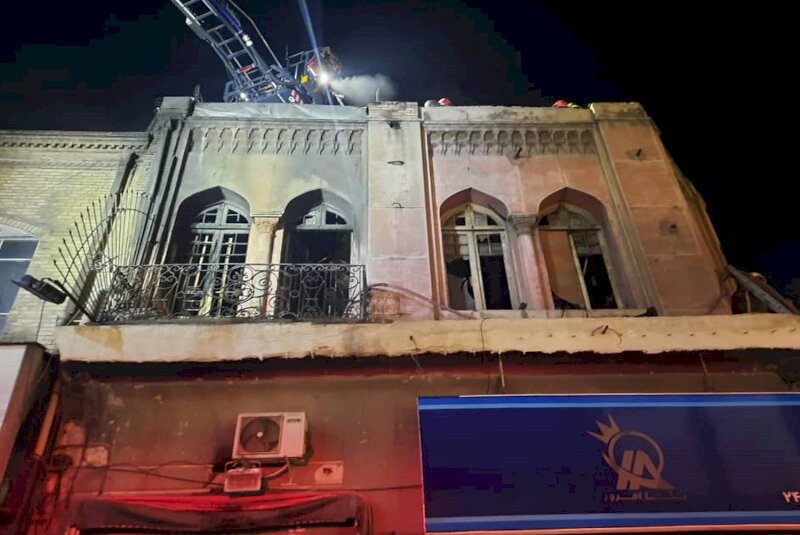Fire inflicts minor damage to historical café downtown Tehran

TEHRAN – A Wednesday fire that broke out in Aibeta Café has caused minor damage to the historical shop, which is located on Lalehzar Street in downtown Tehran.
“Due to the timely arrival of firefighters, the fire at the historical Aibeta Café was brought under control,” Tehran’s deputy tourism chief Morteza Adibzadeh said on Friday.
Fortunately, the fire caused no serious damage to the historical monument, although further evaluation will be made by experts, the official added.
The building’s wooden roof caught fire as it was close to the main source of fire; however, the firefighting efforts were carried out without causing any damage to the main structure, he noted.
The owners and the municipality should join hands to refrain from such incidents by restoring, protecting, and ensuring the safety of the historical buildings on Lalehzar Street, he explained.
located in Lalehzar St. in downtown Tehran, Aibeta Café is named after its original owner, a Russian woman who opened the café in 1967.
Soon the cafe was the meeting place for many artists and intellectuals of the time, such as Malek ush’Shora Bahar.
The café was registered on the national heritage list in 2006.
Lalehzar, which was known as Tehran Broadway during the 1930s, 40s, and 50s, was home to 16 cinema halls and six theater centers as well as modern shops, cafes, and restaurants.
The aesthetic appreciation of the street was a combination of Western architecture with national symbols and elements. There are still elements of Iranian and western architecture in the façades of buildings and signs.
Nassereddin Shah Qajar ordered the construction of Lalehzar St. after the Iranian monarch paid a formal visit to Europe in 1873.
During his trip to Paris, Nassereddin Shah received a warm welcome in a special ceremony at Champs-Élysées Avenue. It had such a profound impact on the Iranian king that he decided to build a similar street in the capital as soon as he returned home.
The existence of cinema halls and theater centers turned the street into a modern hub for cultural activities. It was also home to the Grand Hotel, the first Iranian modern hotel and one of the most important places of its time.
ABU/AFM

Leave a Comment